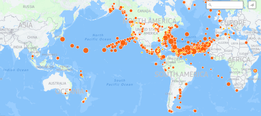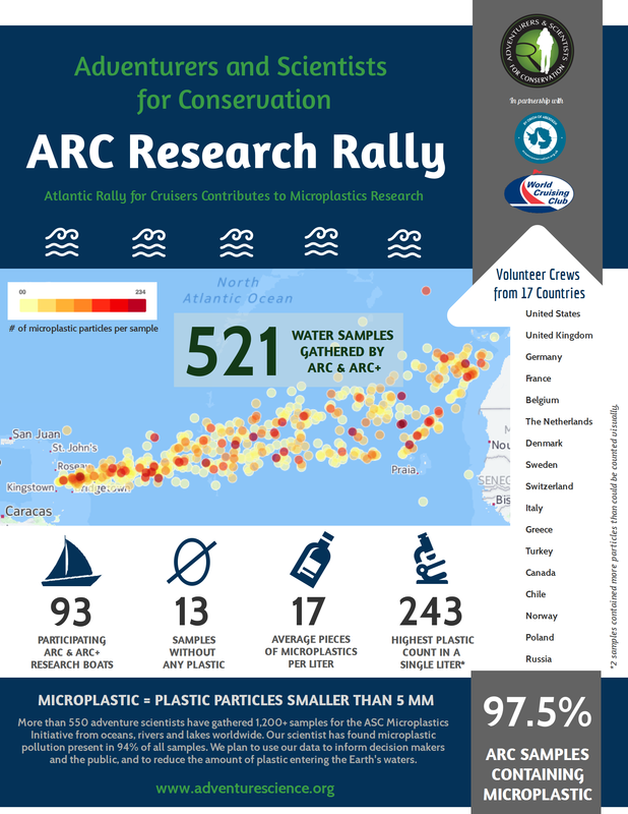In late 2014, ASC partnered with the Atlantic Rally for Cruisers, a fleet of sailboats that makes an annual crossing of the Atlantic. In total, 93 of the 251 boats gathered water samples for the ASC Global Microplastics Initiative, contributing 521 samples to ASC’s dataset and covering an estimated 602,000-square-nautical mile area.
The sources of microplastics pollution include microbeads manufactured for many face washes and toothpastes, particles weathered from larger debris like bottles and bags, and microfibers shed down the drain when synthetic clothing is washed.
The sources of microplastics pollution include microbeads manufactured for many face washes and toothpastes, particles weathered from larger debris like bottles and bags, and microfibers shed down the drain when synthetic clothing is washed.
 Click to view an interactive map of ASC Microplastics sampling locations.
Click to view an interactive map of ASC Microplastics sampling locations.
In addition to the ARC sailors, volunteer sea kayakers, surfers, rowers divers and hikers have collected samples from places including Scandinavia, the Antarctic Peninsula, the Falkland Islands, South Georgia Island and West Africa. They have contributed more than 1,200 samples to the ASC dataset, which is likely the largest of its kind.
“Once we have enough data, we plan to use this information to leverage change, working with legislative, corporate and public partners to stop the influx of microplastics,” said ASC Executive Director Gregg Treinish.
Learn more about the Microplastics Project and other ASC projects on our website, the Field Notes blog, and our Facebook, Twitter, Instagram and Google+ pages.

